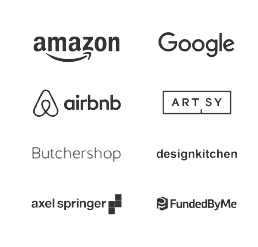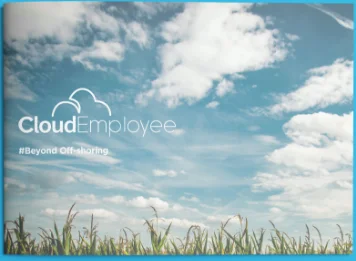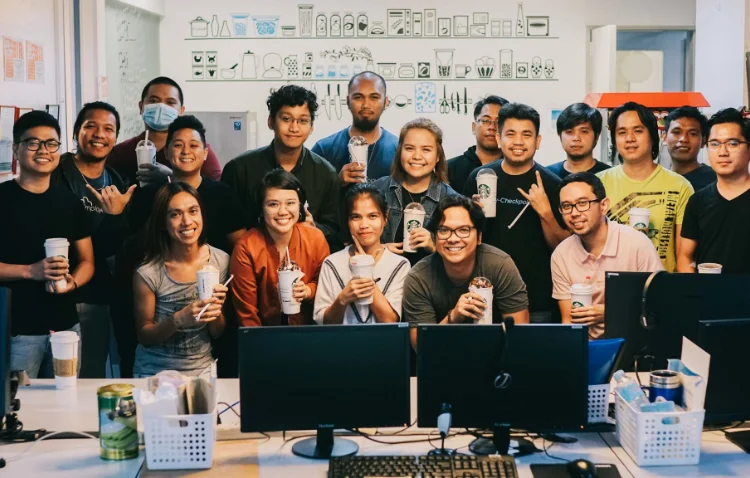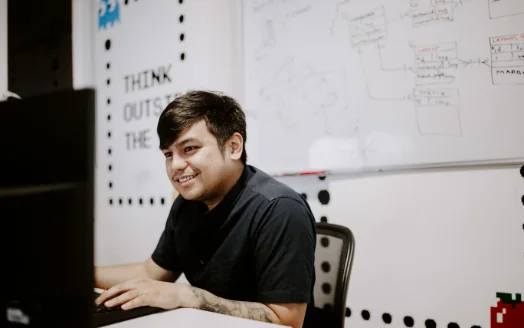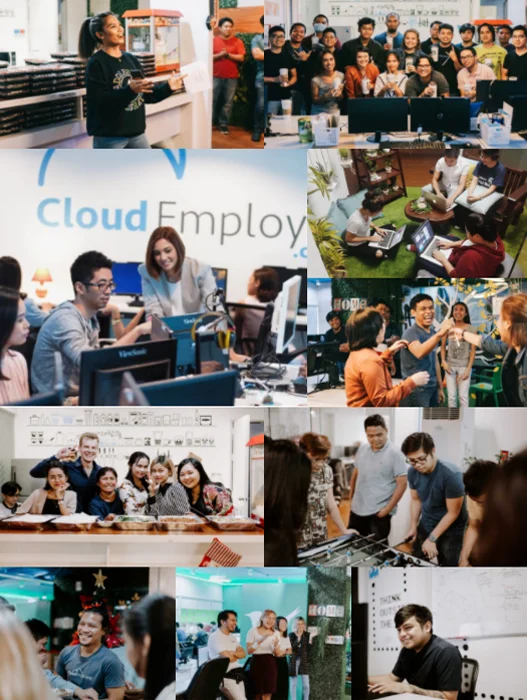The high demand for developers (combined with being one of the world’s best-paid jobs) has made programming one of the most sought after skills of the 21st century. But as most quickly find out, it is a highly technical profession that requires time and plenty of effort to learn.
This has discouraged many, but we are here to tell that the path to becoming a professional developer is not as hard as it might seem. Like any skill worth learning, there are different learning stages to becoming an experienced developer, all of which are surmountable by anyone.
Here, we will discuss these stages and how any aspiring developer can navigate them confidently to become an expert in the field.
The Five Stages of Becoming a Professional Developer
1. Becoming a Beginner
Is coding harder than math? How to learn to code? Is programming hard to learn? These are questions that often lead an aspiring developer here, the first stage of becoming a professional programmer. And thanks to the rising number of resources, free and paid, there is no shortage of answers to those questions, especially how to learn to code.
At this stage, everything is mostly a mystery. You do not know what programming language you prefer, and lines of code still look like a foreign language. And as you read more about computer programming, you start to realise there is so much you have to learn, which can become intimidating and overwhelming.
Here is where those who are not willing to push themselves past their comfort zone usually quit, well before they started. However, if you remain interested, there are plenty of tools and resources to help you get over the first hump in your journey.
How to Navigate this Stage
As a beginner, the most important thing to focus on is the basics. That means if you have zero background knowledge on computers, learning how they work, such as what bits and bytes are and how hard drives store data. After learning these, it is time to learn about programming principles and their technical terms, like what a function or variable is.
The good news is there are plenty of educational coding tools out there that can hold your hands during this stage. You will learn the meaning of each term, its purpose, and general concepts of programming. Your options here range from learning in a structured environment via resources like Codecademy and Treehouse or on your own via YouTube and free online courses.
How it Feels
At this stage of your journey as a developer, once you get started, you generally feel good, and your confidence in your ability to become a professional developer rises. You are able to create short lines of code and have a decent knowledge of the basics.
There is also a chance you are starting to recognise the differences between various programming languages. Whether it is Python, JavaScript or Ruby, you start getting a feel of what language you prefer and creating simple programs. Like taking your first steps as a baby, it feels incredible.
2. The Valley of Self Doubt
On the list of many things I wish someone had told me when I was learning how to code, I wished they told me about this stage of the learning process.
Whether you are teaching yourself how to code or learning via boot camps and coding academies, there has been a lot of advancement in how beginners are introduced to programming. There is a lot of hand-holding offered by these resources that quenched past fears about coding but unfortunately created a false image about the learning process, ultimately leading to a rude awakening.
At this stage, the hand-holding ends. You now have to apply your knowledge of the basics to learn and execute more complex tasks. Here, you might realise your inability to create seemingly straightforward programs without help and start questioning your ability to become a programmer. Here, you might start getting painful answers to how it is to teach yourself how to code.
How to Navigate this Stage
As far as the learning stages of an aspiring developer goes, this is the most dangerous one. Many people hit a wall, and the frustration from the smooth experience in the beginner stage forced them to quit learning for good. However, you should know that every expert programmer you see today passed through this stage, and if you don’t give up, you will overcome it too.
Also, there might be a temptation to switch to another language on the presumption that you will have record better progress with something else. While switching programming languages is fine, doing so, for this reason, is wrong and can be damaging.
Instead, stick with the program and continue learning. You can also find a mentor that encourages you on the worst days or join a community where you can ask questions and reinforce your desire to become a developer.
How it Feels
A crisis of confidence is the defining state of mind here. You will spend a lot of time doubting your intelligence and asking questions like, “is learning to code worth it”. Most of your struggles will involve constant debugging and consistent failure to know the right questions to ask.
The good news is, this is also proof that you are learning, even if it doesn’t feel like it. You are starting to recognise what you don’t know and familiarise yourself with the complexity within the basics. If you ride it out, you will come out of this stage fully armed with the analytical and problem-solving skills you need to become a professional developer.
3. Competent Incompetence
Congratulations, you are now a developer. Once you get to this stage, you have more than passable knowledge of a programming language. You can use coding libraries to build projects and are more familiar with the relevant frameworks for your language.
Suppose you managed to build a few minor projects with a decent GitHub profile during the first and second stage. In that case, you might even be able to secure a job, joining millions of high earners. But you are still far from being an expert.
Yes, you can create functioning programs, maybe even a functional app. But you still face unexpected bugs, and when you don’t, you are not entirely sure what you did right, only that it works. Also, you know enough to know your code is weak.
Additionally, because coding is just one aspect of creating real-world products, you are yet to understand the intricacies of building for the public. You discover you need to learn things like user experience, product flow, security, and code optimisation.
How to Navigate This Stage
Once you arrive at this stage as an aspiring developer, you have completed the first and most crucial phase of becoming a professional. The foundation is solid, and you are now ready to take on the world by learning about everything else you don’t know.
This involves reading other people’s codes, consuming plenty of industry How-To articles to understand the differences between the right and best way of writing code. Additionally, use Google and other resources to learn the unglamorous skills like user testing, data modelling, and architecture required to build a public product.
Most importantly, keep coding and experimenting. The more you study other people’s work and apply them to your own projects, the better you become at creating something excellent by yourself.
How it Feels
There are a lot of conflicting feelings at this stage. On some days, you feel like a genius, and you feel like a fraud on others. Having to check other people’s code and implement them in your work might also make you feel like you are not creative enough.
Ultimately though, especially if you have been able to earn some income as a programmer, you start to enjoy the result of your hard work.
4. The Junction of Enlightenment
Once you are here, being a developer becomes much more than learning how to code but rather how to create the best possible versions of your ideas. At this stage, you spend plenty of time learning about new techniques, improving your efficiency, and solidifying your self-confidence.
You are familiar with abstractions, can detect bad code written by yourself and others, and spend a lot of time optimising your code. Also, you spend a reasonable amount of time teaching others in person, or via blog posts or on forums like Stack Overflow.
Careerwise, people trust you to write good code consistently. If you are part of a corporate entity, you might also find yourself leading a team and creating your own side projects.
However, the most significant change at this stage is you are more familiar with what you don’t know and how to learn them.
How to Navigate This Stage
The most challenging thing about this stage is not writing code but rather managing your ego. Months of work has made you an expert to most people. With several good projects under your belt, the likelihood of arrogance is high. Inability to control this can foster ignorance and eventually lead to obsoleteness.
To navigate this stage of the learning process, constantly subject your work to the perspective of others. Having extra eyes on your work and being open to collaboration will keep you on your toes.
Additionally, stay learning, researching, and creating. Programming is a broad field that is constantly evolving. Investing both time and money into advanced lessons, tech seminars, and other learning avenues can be a way to stay up to date and improve your skills.
How it Feels
Mostly good. You have been through the lows and highs of becoming a developer. Months of fighting bugs have helped you forge a steely mindset. Knowing you stuck with learning when things got hard is now rewarding, psychologically and financially.
However, you might also come to the sad realisation of life as a programmer. You could quit for a different life or stay a developer and enter the last stage.
5. Congratulations, you are an artist
Learning never stops is a famous axiom, one that is particularly true in computer programming. However, you can confidently call yourself an expert at this stage, with the experience and skill level to match.
At this learning stage as a developer, you have become a professional developer in the truest sense of the world. Coding is no longer about writing syntax but creating art. You are no longer writing lines for machines but for human beings. A practical benefit at this stage is your code is documented and extremely easy to read, regardless of the reader’s skill level.
Additionally, you are more familiar with the various stages of the coding process. You can move quickly between code architecture, debugging, etc., and your work routinely passes unit tests.
How to Navigate This Stage
Only a fraction of developers get here. Most programmers get stuck at stage four, and that is not necessarily a bad thing. The most important thing about being a competent programmer is to have a complete understanding of the fundamentals.
Those who get to this stage either spend time researching other aspects of computer science, focusing their time on building products of value, or join larger companies to build products at a massive scale.
How it Feels
The final stage of learning as a developer comes with the joy of creating products of value, industry-wide recognition and the satisfaction of rising to the top of the learning pyramid. And with a portfolio or personal website that shows off your expertise, you can truly feel like a professional.
However, you will still have days where you feel like an impostor, but it only means you still have much to learn.
Final Thoughts
Learning anything new can be tough and challenging. But not many come with a massive reward like becoming a developer. The average salary for a developer range between $65,760 and $112,120 and the industry is expected to grow by 22% between 2019 and 2029.
The trick to navigating every stage of the learning process is dedication, patience, and perseverance in the face of frustration and failures. If you can draw on these qualities, the sky is your limit.
We assist both developers looking for work and companies looking to hire dedicated offshore developers across many technologies. Talk to us, learn more how Cloud Employee works, or see our Developer Pricing Guide.
Work with world leading tech businesses
We connect high-performing software engineer talent in the Philippines with some of the world’s leading and most innovative Tech companies.
Submit CV


